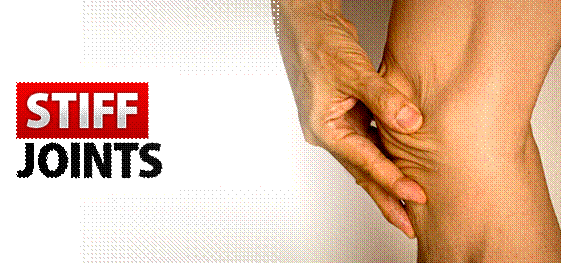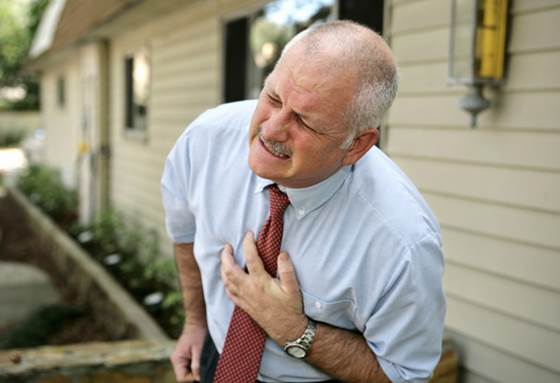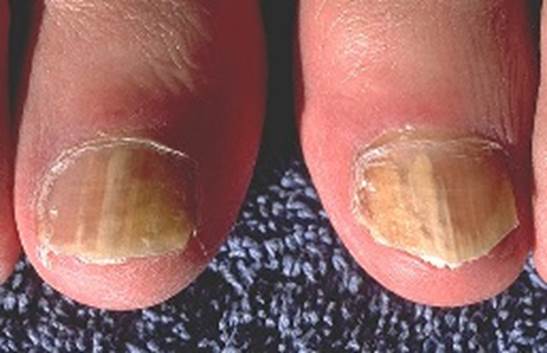30+
What's normal: "Some early morning stiffness is normal - you feel you need
the oil can," says Dr. Chris Reeves of the Australian Osteopathic
Association. Occasional neck or back ache and back stiffness after sitting are
normal, too.
Needs to be checked: Sudden back pain, numbness or pins and needles in the legs. Pain
with fever or rash could be a sign of infection.
50+
What's normal: Muscles, ligaments and tendons lose strength so you might take
longer to get moving and have a stiff back and neck more often. "People
become scared to move as they age but you need to move regularly," says
Reeves.

People
become scared to move as they age but you need to move regularly
Needs to be checked: Being unable to turn your neck to check a blind spot when driving,
joint pain that wakes you up, or intense pain after physical activity.
70+
What's normal: Knee pain while walking downstairs or after kneeling, and needing
to use your arms to push yourself out of a chair are common?
Needs to he checked: Loss of control of limbs or loss of sensation in the limbs and any
pain, redness or swelling around joints.
Looking after your joints: Follow the 30:30 rule - for every 30 minutes you sit down, move for
30 seconds "Try gentle trunk bends, wiggle your legs, shake out the
hands," says Reeves. Walk daily and do weight-bearing exercise for bone
density. "Anecdotally, patients see benefits in taking fish oil
supplements."
Heart
30+
What's normal: "Arteries stiffen so the heart has to work harder and blood
pressure rises," explains Dr. Rob Grenfell of the Heart Foundation. Also,
around 60 per cent of Australians carry excess weight, adding to pressure on
the heart. It's normal to be slightly breathless after walking up three flights
of stairs.
Needs to he checked: Struggling for breath after climbing stairs, getting puffed kicking
a ball around, sudden breathlessness or dizziness.
50+
What's normal: Higher blood pressure is more likely. It's normal to be slightly
breathless after walking up two flights of stairs without stopping.
Needs to be checked: Needing to sit down for long periods, dizziness when standing up,
or breathlessness for no obvious reason.

Higher
blood pressure is more likely
70+
What's normal: "Your kidneys are made up of small filters and you lose some
of those, which affects blood pressure," says Grenfell. You may feel
slightly breathless after walking up stairs and loss of muscle strength
decreases exercise intensity.
Needs to be checked: Feeling light-headed, which increases the risk of a fall.
Looking after your heart: Stay within a
healthy weight range and do at least 30 minutes of physical activity daily.
"Make the most of opportunities to be active throughout the day,
"says Grenfell.
Feet
30+
What's normal: A family history of flat feet or high arches becomes more obvious
and so do bunions, says Dr. Andrew Schox, president of the Australasian
Podiatry Council. Corns and calluses are also common.
Needs to be checked: Pain or discomfort after walking, odd-looking nails or wounds that
don't heal.
50+
What's normal: Fungal nail infections begin as white or yellow spots under the
nail and lead to brittle, thickened and crumbling nails. This can be caused by
damage to the nail or, possibly, diabetes. Anti-fungal medication will help.
Hammer toes - a deformity of the second, third or fourth toe are normal, too.
Ill-fitting shoes may be the cause of this condition.
Needs to be checked: Pain after physical activity or discolored or brittle nails.

Fungal
nail infections begin as white or yellow spots under the nail and lead to
brittle, thickened and crumbling nails
70+
What's normal: "The fat pad under your feet thins after age 70, so you may be
more sensitive walking barefoot or on hard surfaces," says Schox.
Arthritis in the big toe is common, too. "Every time you take a step your
body weight is put through that joint," says Schox.
Needs to be checked: Wounds that don't heal, chronic pain, numbness or odd-looking
lumps or bumps.
Looking after your feet: Wear properly-fitting shoes with a firm sole and soft upper. Trim
toenails so they are slightly curved and just short of the end of the toe. Have
your feet checked by a podiatrist at least once a year.